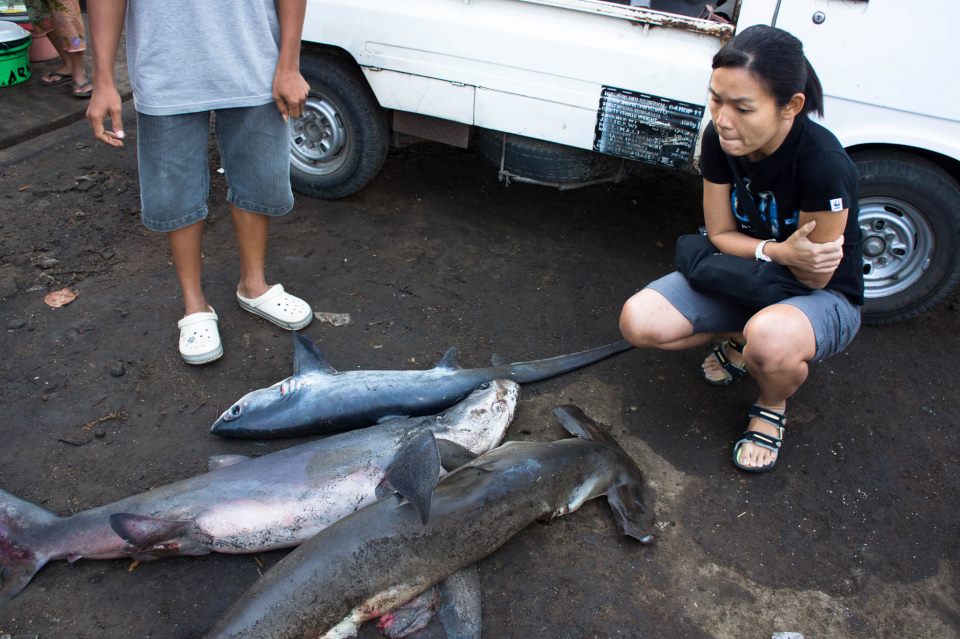
Born and raised in Singapore, 31-year-old Kathy Xu had been a secondary school teacher all her adult life, including a brief stint in Japan in 2009. Despite her love of teaching, Kathy recently made the bold decision to dedicate herself full-time to helping stop the exploitative shark finning trade in Southeast Asia, having visited the island of Lombok three times and witnessed the grim situation first-hand. She is now working to provide those same fishermen with an alternative form of income: ecotourism.
With the long-term goal of replacing shark fishing with environmentally friendly tours operated by locals, Kathy hopes to change the way we think about sharks, as well as help maintain the delicate ecosystem that exists in the seas surrounding Lombok, potentially saving their sharks from extinction.
We sat down with Kathy to talk about her inspiring venture: The Dorsal Effect.
Combining her teaching skills and her passion for sharks, Kathy works as a volunteer for the internationally recognised conservation group Shark Savers, giving talks and presentations at local schools as well as attending exhibitions to raise awareness about the very real plight of sharks today–burdened with the image of being monsters of the sea or otherwise ending up in soups on special occasions.
With a warm smile and a gentle demeanour, Kathy is immediately likeable. Mention shark finning to her, though, and she becomes visibly impassioned. Taking time from her busy schedule, she sat down with RocketNews24 to talk about the inspiration for her work, the difficulties she faces and her ultimate dream for the project.
RN24: Thanks for talking to us today! We’re going to be honest right off the bat here and admit that the thought of saving sharks never really occurred to us much before. What on earth prompted you to get into shark conservation?
Kathy: It was all kind of sudden, really. I just started Googling “saving sharks” after watching [the 2006 documentary] Sharkwater a few years ago and, as luck would have it, a guy named Jonn Lu was starting a regional Asia Pacific branch of Shark Savers in Singapore where I live. After sitting in for the shark 101 shark conservation presentation, I decided to dedicate my life to trying to save sharks because I really want future generations to have a chance to behold their beauty as well. I’ve been teaching for years, so I started helping out by giving talks to schools and new volunteers on shark conservation. Slowly but surely I got more involved and I decided that I wanted to do this full-time, really make a difference somehow.
▼ Helping educate the little ones through Shark Savers.
RN24: But aren’t sharks kind of scary? At least with pandas they look cute and cuddly. Don’t people immediately think of sharks as villains?
Kathy: (laughs) True, true. Well after giving shark conservation talks so many times and using the Jaws theme song as a hook starter always, I’d sing the same refrain. But sharks are the most misunderstood creatures of the oceans; yes they are apex predators, but humans are not on their diet — we don’t belong in the ocean to begin with — and [author] Peter Benchley was so filled with regret over the bad image he gave sharks in Jaws that he and his wife committed their lives to conserving sharks and have been on the board of directors for Shark Savers ever since. Go dive and swim with sharks: your life will be transformed, and just like me, you’d want your kids and the future generations be able to see sharks alive. They’re stunning.
▼And the bigger ones, too!
RN24: So you’ve swum with sharks yourself?
Kathy: Oh, yes! Best experiences ever! The first shark I swam with was with a whale shark off Ningaloo Reef in Exmouth, Australia. The moment I plunged into the depths of the open ocean and took in the sight of a six-metre-long juvenile whale shark was a life changing moment for me. I actually forgot how to breathe for a split second and almost squealed myself into a choke through my snorkel. As we swam on and chased the beautiful creature, I knew that was a sight I wished every Chinese person who still eats shark fin soup could see and be transformed forever.
After that experience, I found myself in South Africa doing cage diving with the sharks, but it wasn’t all that pleasant an experience, to be honest. For one, the guys who took us out on the boat were using chum as bait to lure the great white sharks in so we could see them breach the surface and bare their teeth–the usual crowd-pleasing stuff, you know? I could appreciate that the company was working towards the conservation of the great whites, but I couldn’t reconcile the taunting throughout the entire boat trip to ensure the tourists got a good look at them. Nonetheless, I still appreciated being up close with the beautiful creatures in spite of the biting cold waters off Cape Town!
RN24: As sympathetic as many people are to the plights of animals at the hands of humans, at the mention of groups like PETA, who are known for their fairly outlandish publicity stunts, a lot of people roll their eyes or switch off entirely. Do you meet with much resistance when you broach the subject of saving sharks?
Kathy: Definitely, but it’s more of a cultural issue than public perception. Sometimes there’s really no point trying to out talk the pro-finning guys since their first aim is to get you riled up, it seems. But I guess the easiest crowd I’ve had are the young ones who aren’t so set in their ways or bogged down in tradition. Through them it’s sometimes possible to convey the message to the older generations.
RN24: You’re talking about shark fin soup?
Kathy: Absolutely. It’s been around for generations, so many of the older people won’t change their minds.
▼ Shark fins, freshly removed from their bodies.
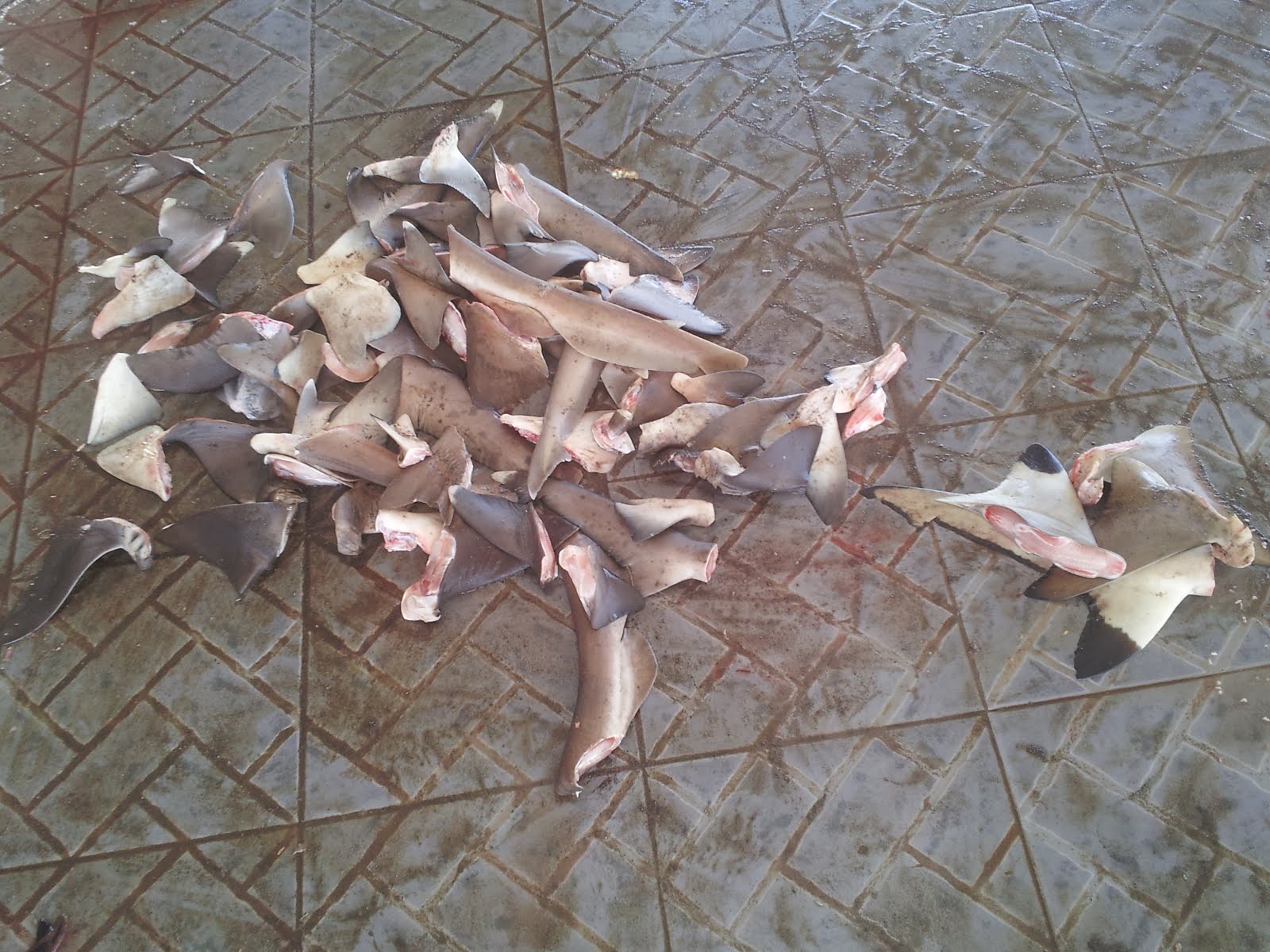
RN24: It’s difficult for many Westerners even to imagine eating a dish like shark fin soup. Is it really that popular?
Kathy: Sadly, yes. All issues of conservation aside, the shark fin itself doesn’t even add much to the flavour of the soup, but it’s still a very popular dish among the older Chinese. It’s a sign of wealth and status to be able to serve shark fin soup at any celebratory dinner or function, so even though it’s becoming taboo in some circles, it’s still a hugely popular choice. We’re seeing a new wave of young people turning the tide against it, though. I just hope it’s enough to the end of the shark finning and fishing industry before we wipe them all out and turn the ecological balance completely upside down.
RN24: Tell us a little more about The Dorsal Effect.
Kathy: Well, this is something of a natural progression for me; a hands-on project. Having left teaching, I’m trying to start The Dorsal Effect as an ecotourism business in Lombok, Indonesia where I have seen shark fishing and finning happening with my own eyes. It’s my goal to convince the fishermen and local authorities that eco-friendly tourism can work in place of the finning.
▼ Today’s catch, dolphins, are lined up on the shore in Lombok.
RN24: So from the people eating the fins at weddings to the people cutting them off by the sea, you’re trying to change their perception of sharks? Can’t be easy.
Kathy: Oh, it’s not! The shark finning industry involves big money and a lot of exploitation. People in Lombok catch the sharks, ultimately, to make a living, and they’re supplying to meet demand. For now, I’m focusing on Lombok, specifically Tanjung Luar on the south-east coast. It’s so beautiful out there, it has to be seen to be believed. But then there’s the finning… This is by no means the only place that shark fishing is going on, but it’s the perfect environment to promote positive tourism.
▼ Beautiful Tanjung Luar

RN24: Positive tourism?
Kathy: Right. At the moment, there’s plenty of tourism on Lombok, but it’s not always based on positive aspects. Endangered shark species are fished for daily. They pull hammerheads, makos, tiger sharks out of the sea. They even catch dolphins sometimes. I know the fishermen are doing this entirely to make a living, so they can’t be blamed per-se, but at the same time there are tourist groups being shown around–they’re guided through the markets to see these endangered sea creatures being cut up and sold–and they’re told “Well, this is how it’s been for years. It’s their culture,” and that’s the end of it. With The Dorsal Effect I want to promote ecotourism in place of shark fishing, starting with the people who catch the sharks and those same tourist groups.
RN24: You want the fishermen involved in this?
Kathy: Absolutely. I’ve got no intention of making people suffer in place of sharks, but we need to instigate change. I hope to be able to start a for profit ecotourism business one day, selling boat trips to tourists in Lombok, and have the once shark fishermen and boat owners take on the alternative livelihood of taking the tourists out on the boat trips instead of catching sharks. Starting one boat at a time, I hope to ultimately be able to convince the Indonesian government to preserve the waters around Lombok as a shark sanctuary and top spot for shark conservation ecotourism. I do still hope to see a day where the boat owners, fishermen and fin traders are able to see the long-term and sustainable economic value of having sharks alive for tourists than having the sharks dead and wiped out instead. I mean, how will the extinction of sharks benefit anyone in the long-run? The day will come when you can make a trip to Lombok and book a boat tour with The Dorsal Effect to help prevent shark killing using your tourist dollars. That’s the dream I’m holding on to right now, and I’m working every day to make it happen.
A big thank you to Kathy Xu for taking the time to talk to us. To find out more, visit www.thedorsaleffect.com or like the group on Facebook.
▼ Shark-friendly merch, anyone?
▼ The sad reality of shark fishing.




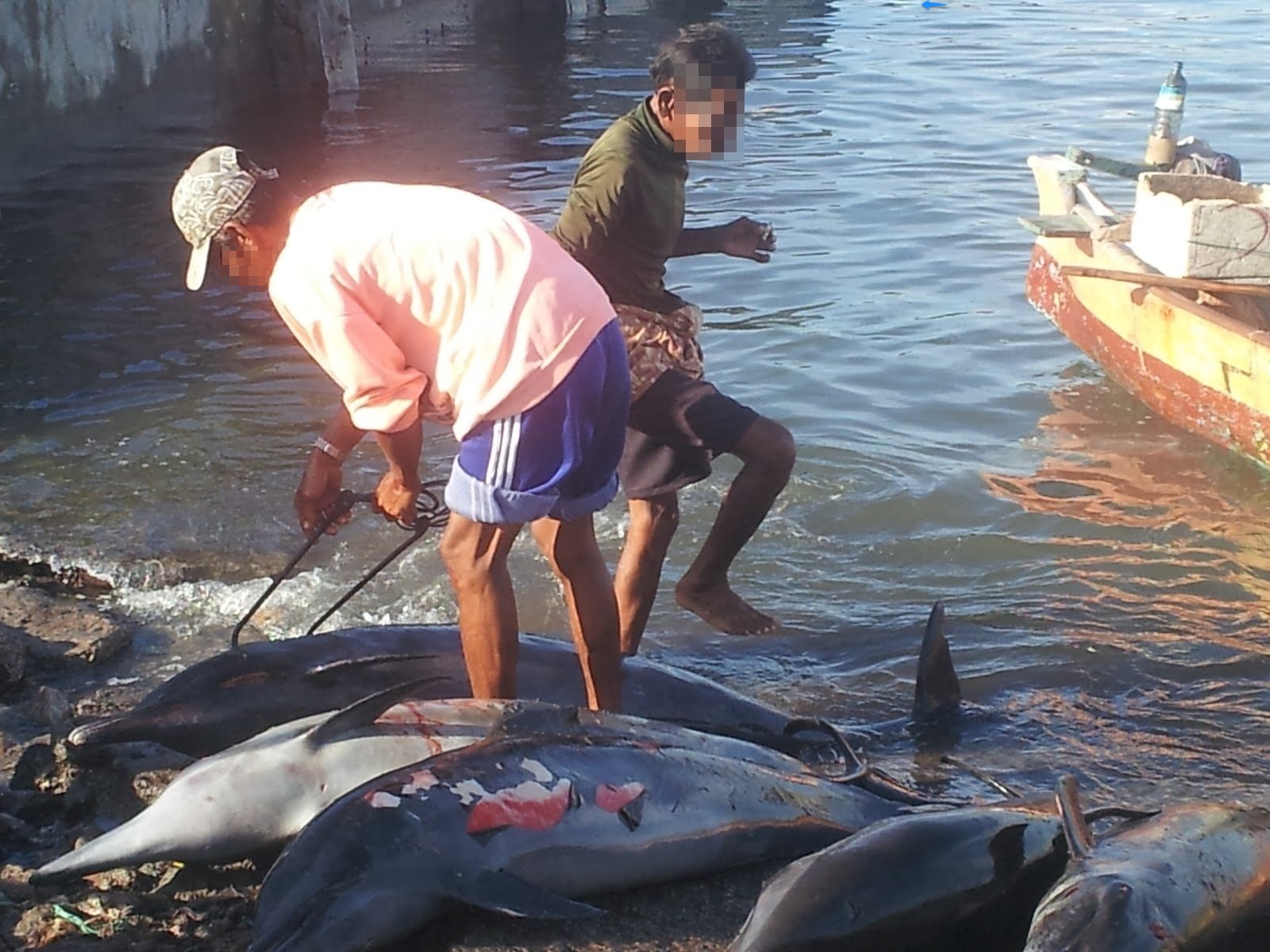
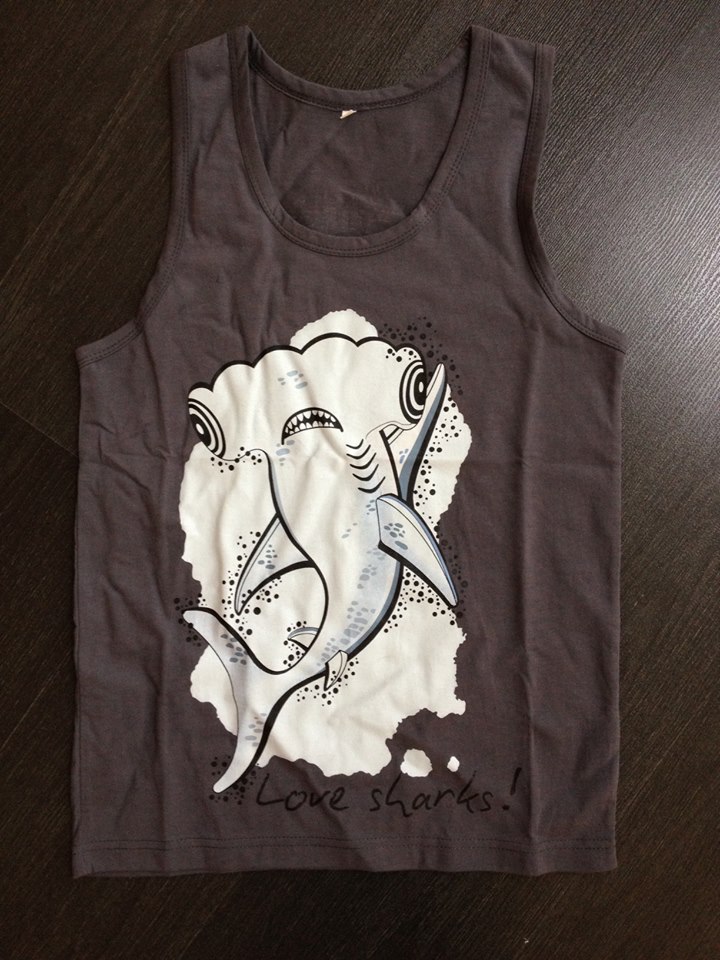
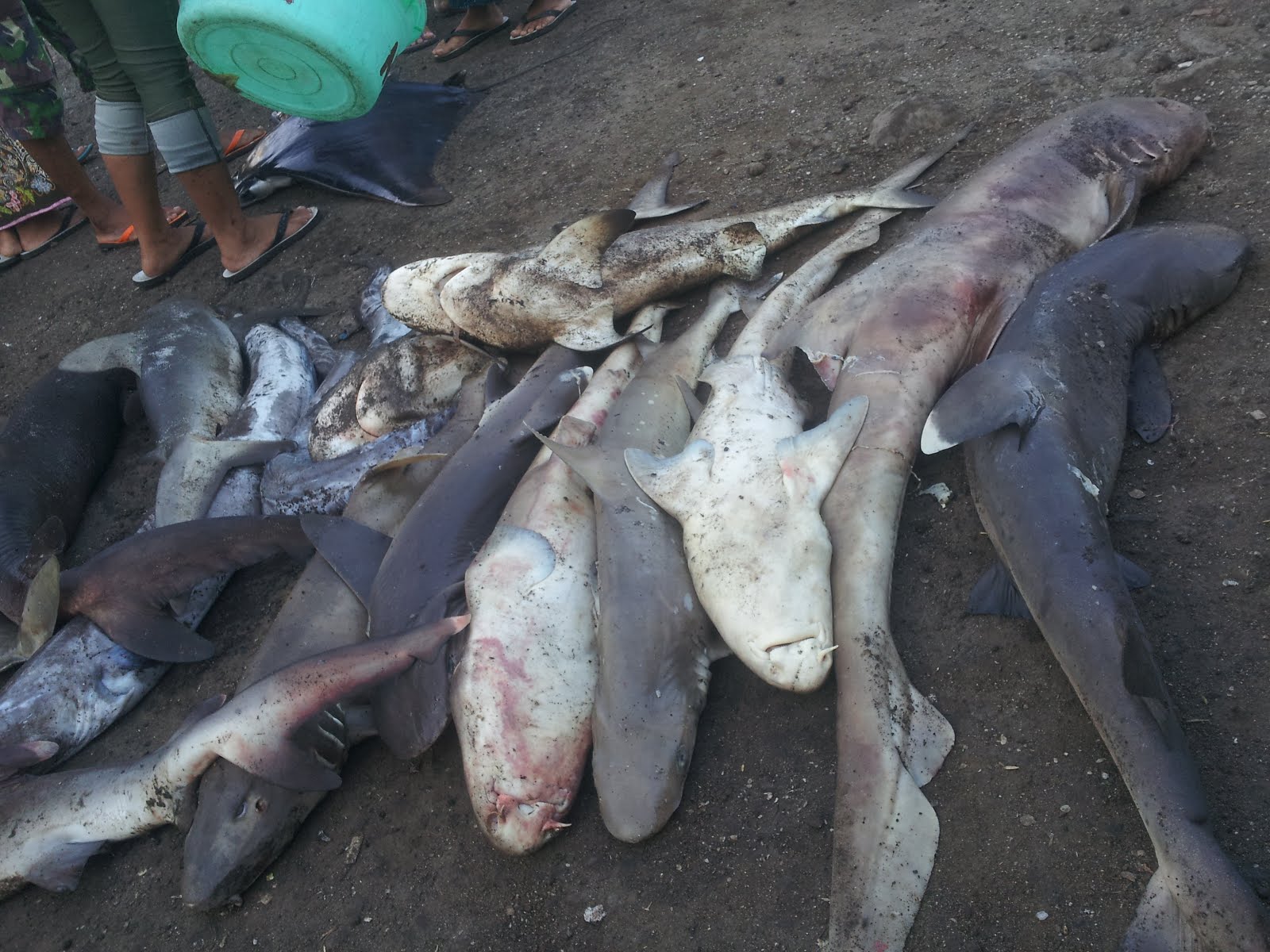

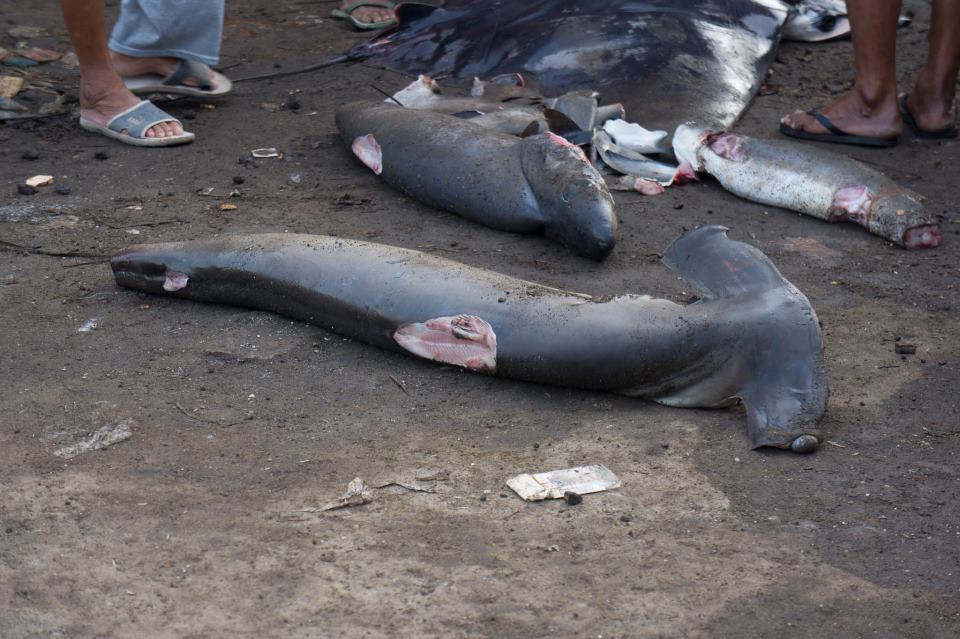
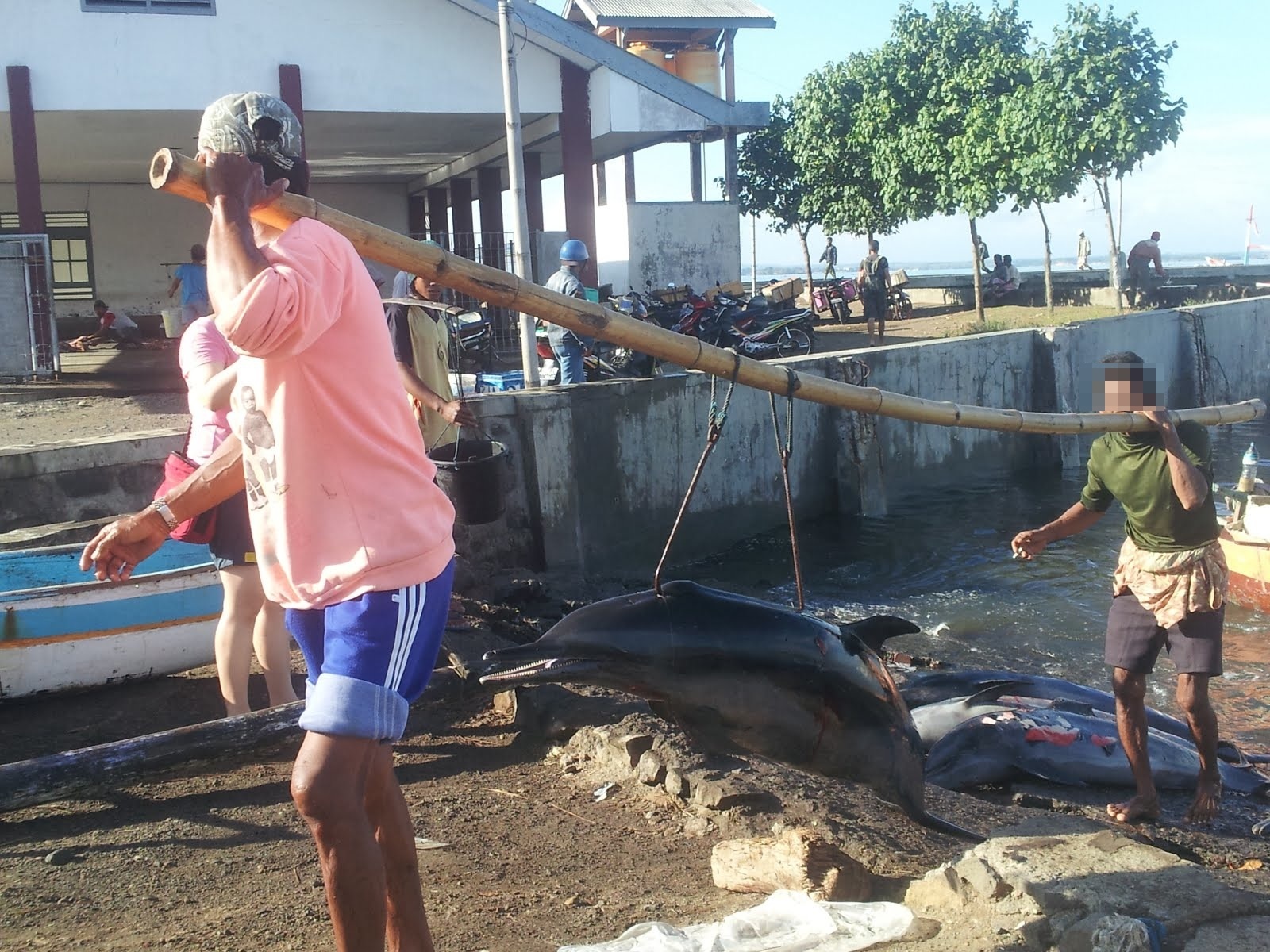
 You can’t miss this amazing footage of a diver swimming in harmony with a giant whale shark
You can’t miss this amazing footage of a diver swimming in harmony with a giant whale shark Eating a shark heart from a Tokyo supermarket【Photos】
Eating a shark heart from a Tokyo supermarket【Photos】 Shark Cat entertaining Shark Baby while riding a Roomba? Why not!
Shark Cat entertaining Shark Baby while riding a Roomba? Why not! Cup Noodle to release “Luxury Shark Fin” and “Softshell Turtle” flavors
Cup Noodle to release “Luxury Shark Fin” and “Softshell Turtle” flavors Attack on Mega Shark? New foe for American B-movie icon looks suspiciously familiar to anime fans
Attack on Mega Shark? New foe for American B-movie icon looks suspiciously familiar to anime fans McDonald’s new Happy Meals offer up cute and practical Sanrio lifestyle goods
McDonald’s new Happy Meals offer up cute and practical Sanrio lifestyle goods All-you-can-drink Starbucks and amazing views part of Tokyo’s new 170 meter-high sky lounge
All-you-can-drink Starbucks and amazing views part of Tokyo’s new 170 meter-high sky lounge Studio Ghibli glasses cases let anime characters keep an eye on your spectacles
Studio Ghibli glasses cases let anime characters keep an eye on your spectacles More foreign tourists than ever before in history visited Japan last month
More foreign tourists than ever before in history visited Japan last month Starbucks reopens at Shibuya Scramble Crossing with new look and design concept
Starbucks reopens at Shibuya Scramble Crossing with new look and design concept Beautiful Sailor Moon manhole cover coasters being given out for free by Tokyo tourist center
Beautiful Sailor Moon manhole cover coasters being given out for free by Tokyo tourist center Mister Donut ready to make hojicha dreams come true in latest collab with Kyoto tea merchant
Mister Donut ready to make hojicha dreams come true in latest collab with Kyoto tea merchant Hamster abandoned at Tokyo ramen restaurant gets new home
Hamster abandoned at Tokyo ramen restaurant gets new home The oldest tunnel in Japan is believed to be haunted, and strange things happen when we go there
The oldest tunnel in Japan is believed to be haunted, and strange things happen when we go there Disney princesses get official manga makeovers for Manga Princess Cafe opening in Tokyo
Disney princesses get official manga makeovers for Manga Princess Cafe opening in Tokyo We try out “Chan Ramen”, an underground type of ramen popular in the ramen community
We try out “Chan Ramen”, an underground type of ramen popular in the ramen community Beautiful new Final Fantasy T-shirt collection on the way from Uniqlo【Photos】
Beautiful new Final Fantasy T-shirt collection on the way from Uniqlo【Photos】 Foreign English teachers in Japan pick their favorite Japanese-language phrases【Survey】
Foreign English teachers in Japan pick their favorite Japanese-language phrases【Survey】 Is the new Shinkansen Train Desk ticket worth it?
Is the new Shinkansen Train Desk ticket worth it? There’s a park inside Japan where you can also see Japan inside the park
There’s a park inside Japan where you can also see Japan inside the park Japanese convenience store packs a whole bento into an onigiri rice ball
Japanese convenience store packs a whole bento into an onigiri rice ball Studio Ghibli releases Kiki’s Delivery Service chocolate cake pouches in Japan
Studio Ghibli releases Kiki’s Delivery Service chocolate cake pouches in Japan Japan’s bone-breaking and record-breaking roller coaster is permanently shutting down
Japan’s bone-breaking and record-breaking roller coaster is permanently shutting down New definition of “Japanese whiskey” goes into effect to prevent fakes from fooling overseas buyers
New definition of “Japanese whiskey” goes into effect to prevent fakes from fooling overseas buyers Foreign passenger shoves conductor on one of the last full runs for Japan’s Thunderbird train
Foreign passenger shoves conductor on one of the last full runs for Japan’s Thunderbird train Our Japanese reporter visits Costco in the U.S., finds super American and very Japanese things
Our Japanese reporter visits Costco in the U.S., finds super American and very Japanese things Kyoto bans tourists from geisha alleys in Gion, with fines for those who don’t follow rules
Kyoto bans tourists from geisha alleys in Gion, with fines for those who don’t follow rules Studio Ghibli unveils Mother’s Day gift set that captures the love in My Neighbour Totoro
Studio Ghibli unveils Mother’s Day gift set that captures the love in My Neighbour Totoro Domino’s Japan now sells…pizza ears?
Domino’s Japan now sells…pizza ears? New Japanese KitKat flavour stars Sanrio characters, including Hello Kitty
New Japanese KitKat flavour stars Sanrio characters, including Hello Kitty Sales of Japan’s most convenient train ticket/shopping payment cards suspended indefinitely
Sales of Japan’s most convenient train ticket/shopping payment cards suspended indefinitely Sold-out Studio Ghibli desktop humidifiers are back so Totoro can help you through the dry season
Sold-out Studio Ghibli desktop humidifiers are back so Totoro can help you through the dry season Japanese government to make first change to romanization spelling rules since the 1950s
Japanese government to make first change to romanization spelling rules since the 1950s Ghibli founders Toshio Suzuki and Hayao Miyazaki contribute to Japanese whisky Totoro label design
Ghibli founders Toshio Suzuki and Hayao Miyazaki contribute to Japanese whisky Totoro label design Doraemon found buried at sea as scene from 1993 anime becomes real life【Photos】
Doraemon found buried at sea as scene from 1993 anime becomes real life【Photos】 Tokyo’s most famous Starbucks is closed
Tokyo’s most famous Starbucks is closed One Piece characters’ nationalities revealed, but fans have mixed opinions
One Piece characters’ nationalities revealed, but fans have mixed opinions We asked a Uniqlo employee what four things we should buy and their suggestions didn’t disappoint
We asked a Uniqlo employee what four things we should buy and their suggestions didn’t disappoint Princesses, fruits, and blacksmiths: Study reveals the 30 most unusual family names in Japan
Princesses, fruits, and blacksmiths: Study reveals the 30 most unusual family names in Japan Studio Ghibli’s new desktop Howl’s Moving Castle will take your stationery on an adventure
Studio Ghibli’s new desktop Howl’s Moving Castle will take your stationery on an adventure Japan creates a hyper-intense fishing game that’s not for the faint of heart【Video】
Japan creates a hyper-intense fishing game that’s not for the faint of heart【Video】 Chuka Zanmai instant ramen offering ultra luxurious limited-edition two-meal seat for $50
Chuka Zanmai instant ramen offering ultra luxurious limited-edition two-meal seat for $50 Japanese town suffers population decline, turns its local elementary school into an aquarium
Japanese town suffers population decline, turns its local elementary school into an aquarium Field-testing the shark sleeping bag/hoodie/kigurumi being offered for zero yen online【Photos】
Field-testing the shark sleeping bag/hoodie/kigurumi being offered for zero yen online【Photos】 Japanese museum celebrates Golden Week by publicly dissecting rare sea creature 【Photos】
Japanese museum celebrates Golden Week by publicly dissecting rare sea creature 【Photos】 Cosmetic wizardry: Asian women removing makeup to reveal their true selves goes viral【Video】
Cosmetic wizardry: Asian women removing makeup to reveal their true selves goes viral【Video】 Meet Hololive’s brand new adorable VTubers, designed to win you over with English
Meet Hololive’s brand new adorable VTubers, designed to win you over with English Chance to feel a shark’s nards and more at Sunshine Aquarium’s “Lots of Sex” Exhibit
Chance to feel a shark’s nards and more at Sunshine Aquarium’s “Lots of Sex” Exhibit Taco Bell’s anime mecha commercial has us emotionally invested in nacho fries【Video】
Taco Bell’s anime mecha commercial has us emotionally invested in nacho fries【Video】 Japanese netizens lament over the long, but sad life of sea urchins
Japanese netizens lament over the long, but sad life of sea urchins Cameron Diaz in the Philippines? Lookalike tourist has everyone guessing on the island of Palawan
Cameron Diaz in the Philippines? Lookalike tourist has everyone guessing on the island of Palawan Are they quackers? Foie gras potato chips, with “real foie gras” flakes, may ruffle feathers
Are they quackers? Foie gras potato chips, with “real foie gras” flakes, may ruffle feathers The ultimate eco-friendly art: Korean artist makes animal sculptures out of discarded tires【Pics】
The ultimate eco-friendly art: Korean artist makes animal sculptures out of discarded tires【Pics】 Need a whale-ly cool party idea? Make your own easy and fun banana dolphins! 【DIY】
Need a whale-ly cool party idea? Make your own easy and fun banana dolphins! 【DIY】 Vietnam’s cutest fishmonger is a swanky cat, drives a hard bargain with his sea-captain stare
Vietnam’s cutest fishmonger is a swanky cat, drives a hard bargain with his sea-captain stare
Leave a Reply